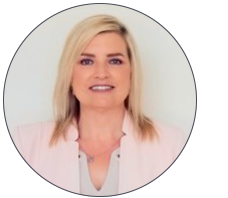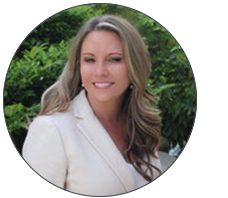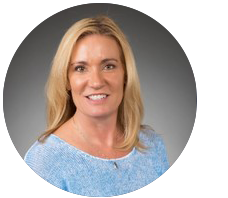Every year on March 8, we celebrate International Women’s Day.
This year, we sat down (virtually!) with five female leaders at SCP Health who have vast knowledge and advice to share from both business and clinical perspectives. Read on to learn from their experiences and be inspired by their passion.
To start, here’s a quick introduction to our International Women’s Day Class of 2021:

Jill Hunt, PA
Vice President, NP/PA Services

Jackie Newman, RN
Senior Vice President, eHealth

Felixia Colón, MBA, FACHE
Senior Vice President, Operations

Lisa Kerich, PA-C, MBA
Executive Vice President, National Director of NP/PA Services

Leanne Landreneau
Executive Vice President, Staffing Operations
Now, we’ll dive into the Q&A.
What gets you up in the morning?
Jill Hunt: I am fortunate enough to work for a company that supports my leadership, goals, and directives—meaning I get to do what I love every day! It’s so exciting when you have the chance to work with people you enjoy—and when you truly believe in the company you work for. I love what I do. Of course, I have challenging days, but it feels good to be a part of important change and see the hard work pay off.
Jackie Newman: What I do is new and innovative—and I love that. The opportunity to develop new ways of caring for and supporting patients is motivating and meaningful.
Felixia Colon: I love knowing that I have an individual impact on what happens in patient care, even though I am not clinical. I get up in the morning with the goal to help hospital systems run better with the goal of providing better experiences and outcomes to their patients.
Lisa Kerich: I love that I get to impact patient care, clinical practice, and corporate development as well. It’s exciting to find new and meaningful ways to use nurse practitioners (NPs) and physician assistants (PAs) to advance healthcare! I also still practice as a PA occasionally, which is always an awesome way to mix it up.
Leanne Landreneau: Gratitude. It is the source of energy that gets me looking forward to the next day. The list is far too vast to chronicle but certainly at the top is doing work that helps make people’s lives better and working alongside people who I am proud to be associated with.
How have your career goals and aspirations evolved as you’ve grown and developed?
Jill Hunt: From a very early age, I wanted to be a leader. I think you do what you are in life. I love leading people—my favorite thing about what I do is building up other leaders. I’ve always wanted to be part of someone else’s success – it’s not just about you when you’re a leader.
Even before getting involved in healthcare, I’ve always been in leadership. Later in life, I decided to go back to school to become a PA and have been able to apply those leadership skills and passions in this field. Honestly, I don’t think I know how to not be a leader!
Jackie Newman: In my career—and even in my personal life—I’m always seeing how things can be better and different. Starting in the clinical area as a nurse, I remember looking at situations and discussing how things could be improved with my leadership. I see when things are broken, and I thrive on collaborating with others to find safe, effective solutions.
Felixia Colon: I wanted to be a lawyer for a while, then though I’d be a nurse for quite some time. Once I got to college, however, I realized that I could still have an impact in the healthcare world through a business lens. When I went through the healthcare administration degree, I had to take the same clinical prerequisites as the nursing degree, which gave me a strong foundation, too.
Lisa Kerich: I always knew I wanted to do something with medicine. Especially being an elite gymnast growing up, I was always getting hurt and going to the hospital—so it was a very familiar world for me. Originally, I thought that my future was to become a plastic surgeon and using my creative side to find innovative ways to heal people. Then the summer before I started medical school, I had a hospital visit where I was treated by a PA. I’d never heard of it before, but after that experience I decided to pivot to the PA path and honestly—it was the best decision I ever made.
Leanne Landreneau: I originally thought I’d be a physical therapist and/or a college basketball coach. Sports were a big part of my world growing up and I have always loved that team environment. I still absolutely love the trust, accomplishment, and support that comes with being on and leading a team—and I think that’s a big part of why I love what I do now.
If you had to pick one other career or job—anything you want—what would you pick and why?
Jill Hunt: It would always be something involving leadership, but I’d probably explore the creative side of me even more. I’m not what I consider a creative person in art or music or anything—but it’s always fun to develop something from the very beginning. I love ideating and writing a new job description, for example. Seeing a vision and being able to execute it from the very beginning is always very exciting.
Jackie Newman: I grew up in a geographical area that didn’t provide many options in terms of careers for women. Nursing seemed like the best of the choices for me, but it didn’t come easily at all—particularly at first. Fortunately, I was able to channel my skills and natural leadership ability into nursing, which has allowed me to grow into new opportunities, find success, and build the career path that I’ve taken.
Felixia Colon: I’d probably be focused on developing and deploying technological solutions throughout the care continuum to improve patient care and clinician practice.
Lisa Kerich: Definitely a malpractice attorney – hands down!
Leanne Landreneau: Really, anything that involves being part of a close team. I love participating in the camaraderie that comes along with pursuing shared goals and passions. If I had to pick one off the top of my head it might be The Dave Ramsey Team. They all have different expertise but are all focused on teaching people practical ways to improve their lives and build more peaceful futures.
What advice would you give to younger women just starting in their careers?
Jill Hunt: As a woman, you are always conscious of how you are being perceived—particularly when you are a strong leader. Something you say, advice you give, or ideas you have can be taken differently since you are a female than if you were a male—and I think this is an area where we need to keep pushing for change. Though many males are amazing to work with, still a woman can be interpreted as moody or emotional while a man doing or saying the same exact things may be simply looked at as assertive and strong. I think it’s very important to be conscious of this dynamic.
Jackie Newman: Given the limited opportunities I had career-wise growing up, I’ve tried to advise and inspire women to let them know that they do have options regardless of their initial backgrounds or how they start out. There are opportunities to shift and adapt into all sorts of new roles and responsibilities—particularly if you take the time to prepare thoroughly and you’re not afraid to ask questions or speak up.
I’ll also say that being a woman in business—particularly healthcare—can be challenging. It’s so important to first appreciate and be grateful for the women who have blazed paths for us, and then to do the same for those women coming after us.
I certainly would advise women to seek out opportunities to support other women and build a community. This certainly applies to how we treat other women in our own workplace. Try not to be intimidated by those under you. Instead, channel your energy into empowering them, cultivating the skills they have, and guiding them to reach their biggest goals.
Felixia Colon: Have mentors!! That is one key thing in terms of growth and development in every arena.
Speaking as a minority woman, I’d also add this: It’s great to be mentored by other minority women, but you also have to understand that you are almost always going to be dealing with people who don’t look like you, sound like you, or come from a similar background as you. Look for mentors in all types of roles, of all types of races and ethnicities, etc. to give you that 360-degree view.
Lisa Kerich: One of the biggest things that I’ve learned is to be confident in what you know and what you don’t know. Don’t limit yourself and no one gets to decide your path but you. My dad used to tell me, “You can either be a victim or a victor,” and that has always stuck with me. Try not to be discouraged when people say that you can’t do something or that you’re not qualified.
Another little phrase I keep with me is, “’Can’t’ never did anything until it met ‘could’.” To me, that means to not let things stand in your way and to pursue your goals boldly.
One more thing I always say to my kids is, “there’s no trying—there’s only doing.” You do and you keep doing until you do it right or you do something else.
Leanne Landreneau: Be curious and ask questions. First, ask yourself what your natural talents are and how much effort you are willing to extend to learn and develop new ones. Then be bold and humble enough to ask others about what they have experienced. Being willing to ask questions is something that cultivates respect, builds relationships, and drives mutual learning. Most everybody will take the time to have the conversation and share what they’ve learned.
What are you most proud of achieving or accomplishing in your career?
Jill Hunt: I don’t know that there is one single event or accomplishment, but I am proud of my tenacity; I am proud of my drive; and I’m proud that I persist even in the most challenging of circumstances. As leaders, we all have moments where we want to give up and it feels too difficult, but I love what I do and that makes a difference. I feel good about the decisions I’ve made and the role I am in now is what I’ve always wanted.
Jackie Newman: I’m really excited about what I’ve been able to do here at SCP Health with the telemedicine service line. It was really a chance to build something from the ground up.
I’m also proud of how I’ve learned and grown under both wonderful and…not-so-wonderful… bosses. I’m glad that I’ve been able to use those experiences—both good and bad—to mold my behavior in ways that take me to each new level of my career.
Felixia Colon: One of my favorite projects has been growing our telehealth presence here at SCP Health. I have loved collaborating with our colleagues to roll out new services and technologies—and it’s of course gratifying to watch it all evolve and think, “Wow, that turned out pretty well.” I’m thankful that we were empowered to use our creativity, expertise, and vision to develop something that has now quadrupled in size and impact since we started.
Lisa Kerich: First and foremost, I’m proud of raising two incredible, accomplished children by myself. In my career, I am–*knock on wood*–thankful that I have never been sued as a practitioner. Those are my two big highlights.
Leanne Landreneau: I am proud that I have been able to grow and be challenged in the same company for nearly 15 years. Building a career while building my family life has not been easy, but a great personal accomplishment.
How have you managed the stress that comes with a career in the healthcare world?
Jill Hunt: Success is like an iceberg and people only see the success at the top. Underneath that image is a lot of stress, trials, tears, and frustration—and you have to be able to manage that effectively, be persistent, and be patient. Early on in your career, it’s important to find ways to stay grounded and to center on your purpose, because the higher up you move, the more the pressure will build.
For instance, when I get stressed about particular situations or tasks, I ask myself: How important is this on a scale of 1 to 10? Based on that rating, how much energy should I be allocating? Some things you can let go of, while some things have to be your priority. Remember that not everything can be number one.
Jackie Newman: For me, years of clinical care taught me how to deal with pressure. There is nothing more intense than a life-or-death situation. Having come from that into a business environment has allowed me to keep my cool most of the time. I also try to remember that we are always working the problem and everything can bring us closer to a solution, which allows me to avoid the feeling of failure or loss.
Felixia Colon: As women, we have to learn that it is okay to say no. It is okay to unplug. It is okay to have a moment. We try to push and push, saying “let me just take on one more thing…or answer just one more email…etc.” I’ve really focused on finding a good balance between my work and my life – and that can be really difficult for women. Find outlets that you enjoy—and be really present when you’re encountering them. Try to avoid letting everything bleed together so that you can keep healthy boundaries and create space for yourself to recover and rejuvenate.
Lisa Kerich: I always do one family vacation per year, no matter what. That is very important for my sanity and helps me re-ground in what matters.
I also try to make decisions based in the reality that I am not promised tomorrow. I want to be proud of who I am and what I am doing—and that helps me stay on track and enjoy where I am at rather than getting stressed about circumstances.
Leanne Landreneau: When life feels particularly heavy, I think through these two things:
First, it won’t always be this way and I won’t always feel this way. I may not have a silver lining at the moment, but in time this feeling or situation will subside, change, or pass entirely.
Second, try to do one thing at a time and remember that going faster is not the answer. For some reason when we are particularly stressed, our ability to prioritize gets shaky, which means everything starts to feel equally as important and pressing. But that’s really not true. We have to step back, take a breath, and do our best to think rationally about what the most critical thing is right now versus what can wait.


